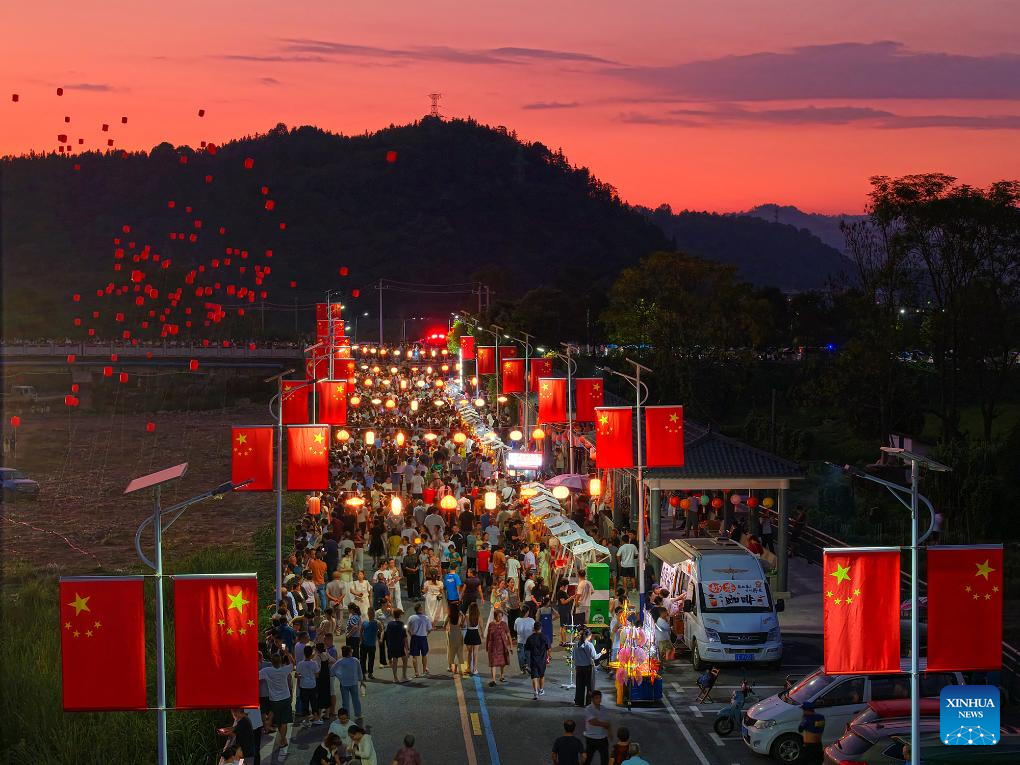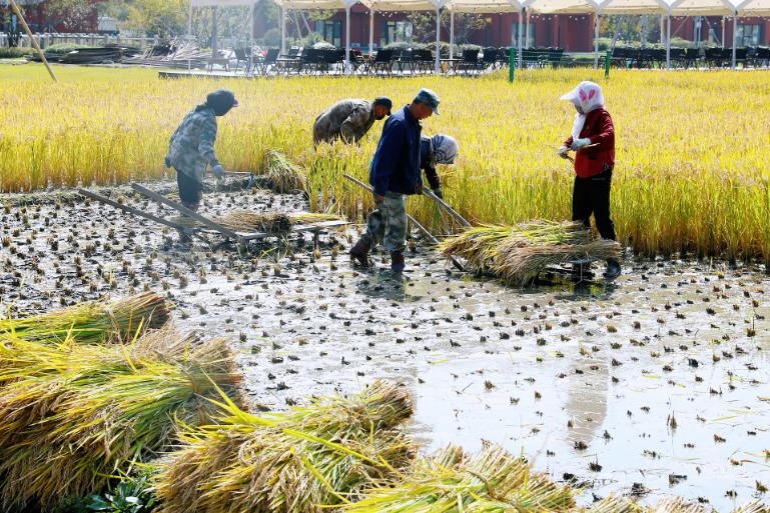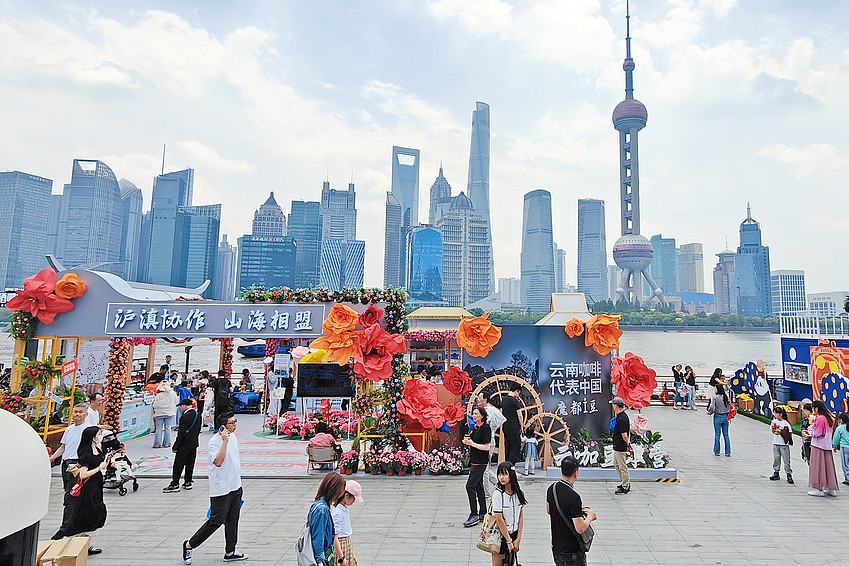Tourists flock to rural destinations nationwide


Tourists flocked to China's rural destinations during the eight-day National Day and Mid-Autumn Festival holiday, bringing fresh income to villagers close to home.
The Huajiang Grand Canyon Bridge, which opened to traffic on Sept 28, became a major draw in Guizhou province. Huge crowds descended on nearby hamlets to find the best vantage points of what is billed as the world's tallest bridge.
Keli village in Huajiang township, Guanling county, sits at one of the prime viewing spots. On Oct 1 alone, vehicle entries exceeded 10,000.
"Over the holiday, the village saw nearly 70,000 vehicle visits and hosted almost 200,000 visits," said Xu Daihui, deputy Party secretary of the township. "Most visitors come to see the bridge, and they eat in Huajiang and stay in Huajiang."
Villagers set up about 50 temporary stalls selling snacks, drinks and traditional dishes. Xu said she learned that one villager selling a local rice-noodle specialty earned about 500 yuan ($70) per day.
All 24 lodging businesses in the town were fully booked for the holiday, forcing some visitors to seek rooms in more distant areas.
Tourists have not only boosted local incomes but also raised the profile of regional agricultural specialties. Several viewing platforms around the town offer different perspectives of the bridge and host stalls selling local produce, including the regionally famed yellow cattle.
Huajiang village, directly below the bridge, also experienced heavy traffic. Some village elders joked that the number of cars over just a few days surpassed anything they had seen in the past decade.
Local authorities coordinated shuttle services to ferry visitors into the village and hastily built a temporary parking lot with space for 200 vehicles.
"At first the guesthouse ran with three staff members, but during this period we had to hire eight to keep up," said Lin Guoquan, who runs a guesthouse in the village. His property offers a view of the bridge from its bedrooms.
Lin said the guesthouse's more than 40 rooms were full every day. With demand so high, he even set up tents and opened family homes to accommodate nearly 100 guests per day.
Locals welcomed the chance to earn money without leaving home.
Beyond Guizhou, rural destinations in Hubei province also saw increased visitor numbers. In Zigui county, tourists traveled to Shiya village to admire morning mountain mist and tiered tea terraces, and to take part in tea-picking and processing at highland gardens.
"We have built homestays, pavilions and walking paths, and used our tea brand to develop tea-tourism experiences," said Li Wentong, general manager of Zigui County Shanshan Agricultural Development.
The local tourism department said guesthouses in the village were nearly full during the first four days of the holiday.
Li said that his company has assisted over 1,000 households in joining the tea-related industry.
liuboqian@chinadaily.com.cn






































